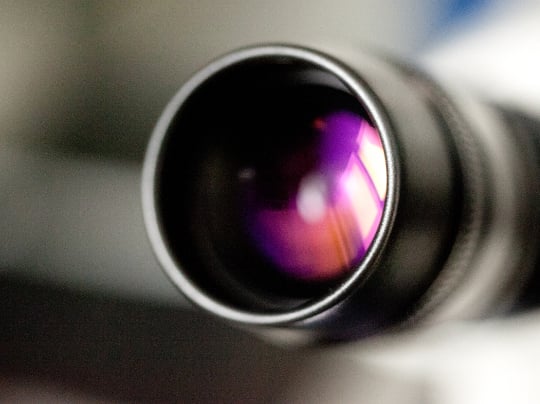
A new £3m grant from Wellcome to a consortium led by scientists at Imperial College London and The Institute of Cancer Research, London, will help to purchase a state-of-the-art cryo-electron microscopy machine.
‘Cryo-EM’ is a technology that could revolutionise drug design. It allows researchers to visualise molecules in such fine detail that they can see the structure of their atoms.
The machine will provisionally be based at The Francis Crick Institute and is expected to be operational in early 2018. It will be used by scientists from the ICR, Imperial College London, King’s College London, and Queen Mary University of London.
Cool tech
ICR researchers including Dr Edward Morris have pioneered cryo-EM – which involves freezing and imaging samples at -180°C – in cancer research.
A study led by Dr Morris helped establish the technique in cancer drug discovery, by imaging a key protein complex and highlighting a binding site for potential drugs – even showing an inhibitor molecule bound in place, blocking the protein’s action.
The announcement of the new award from Wellcome comes shortly after the launch of a new Cancer Research Centre of Excellence – a strategic partnership between Imperial College London and the ICR to drive forward advances in the detection, prevention, diagnosis and treatment of cancer.
Revolutionising structural biology
Professor Jonathon Pines, Head of Cancer Biology at the ICR, said: “Cryo-EM is revolutionising the whole field of structural biology and will be particularly important in cancer drug design.
"It not only offers far higher resolution than traditional EM methods – the Krios instrument allows the visualisation of atomic structures – but means we can study protein complexes in conditions closer to those in the human body. Cryo-EM should make it much easier to design new, more potent cancer drugs.
“We’re delighted to have access to this new facility, which will lead to new collaborations between scientists at several London institutes – including strengthening partnerships between researchers at the joint ICR and Imperial Centre for Cancer Research Excellence.”